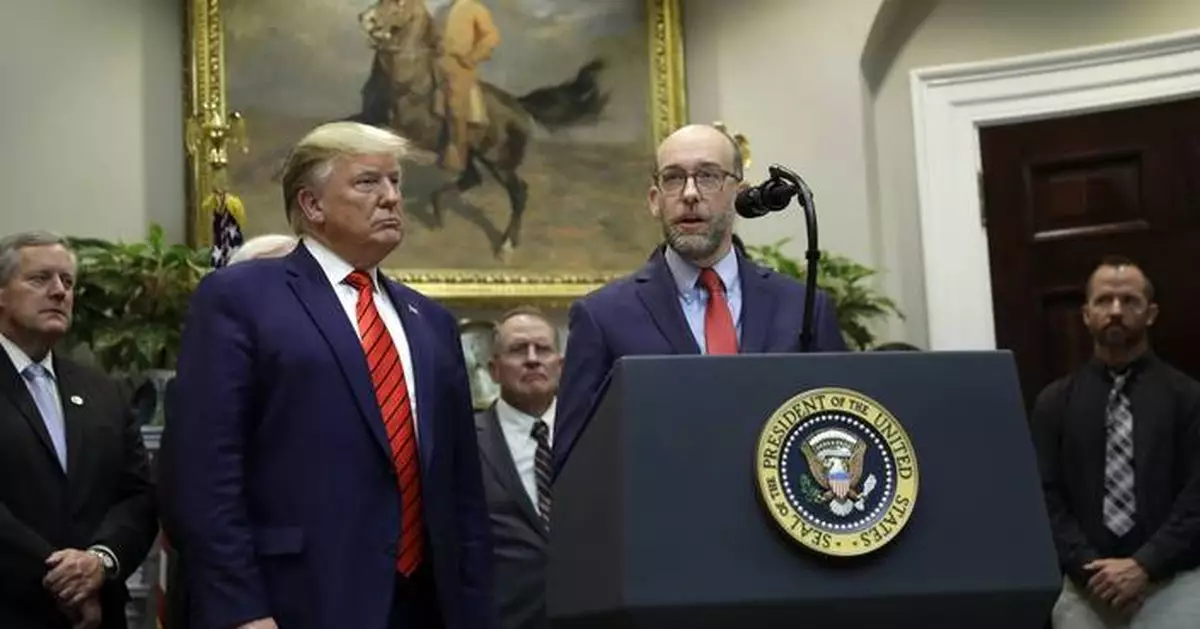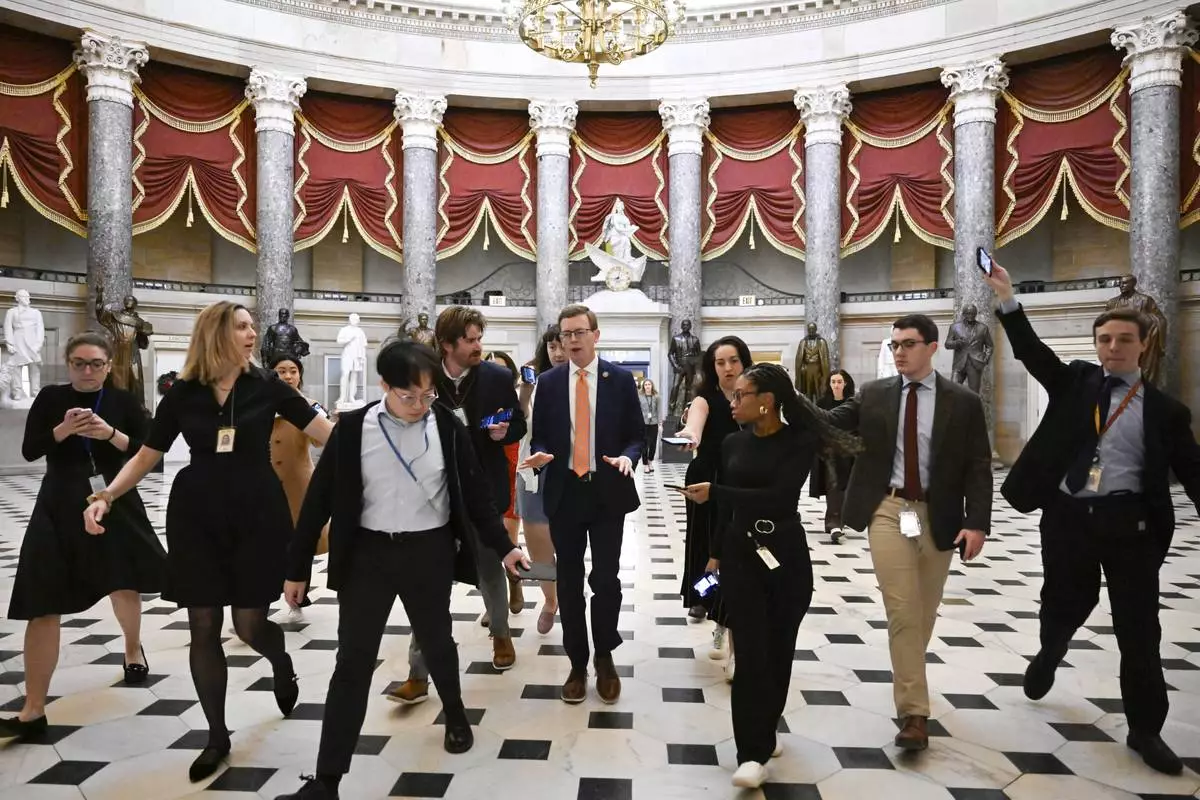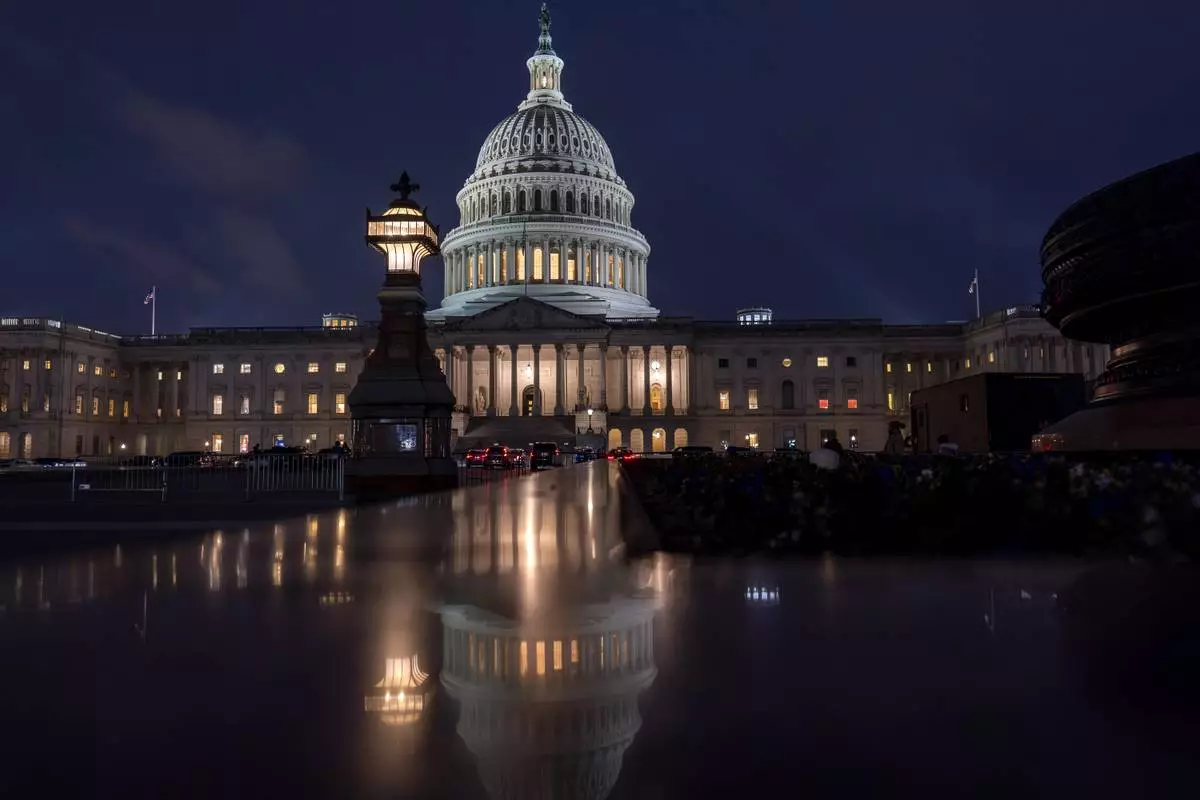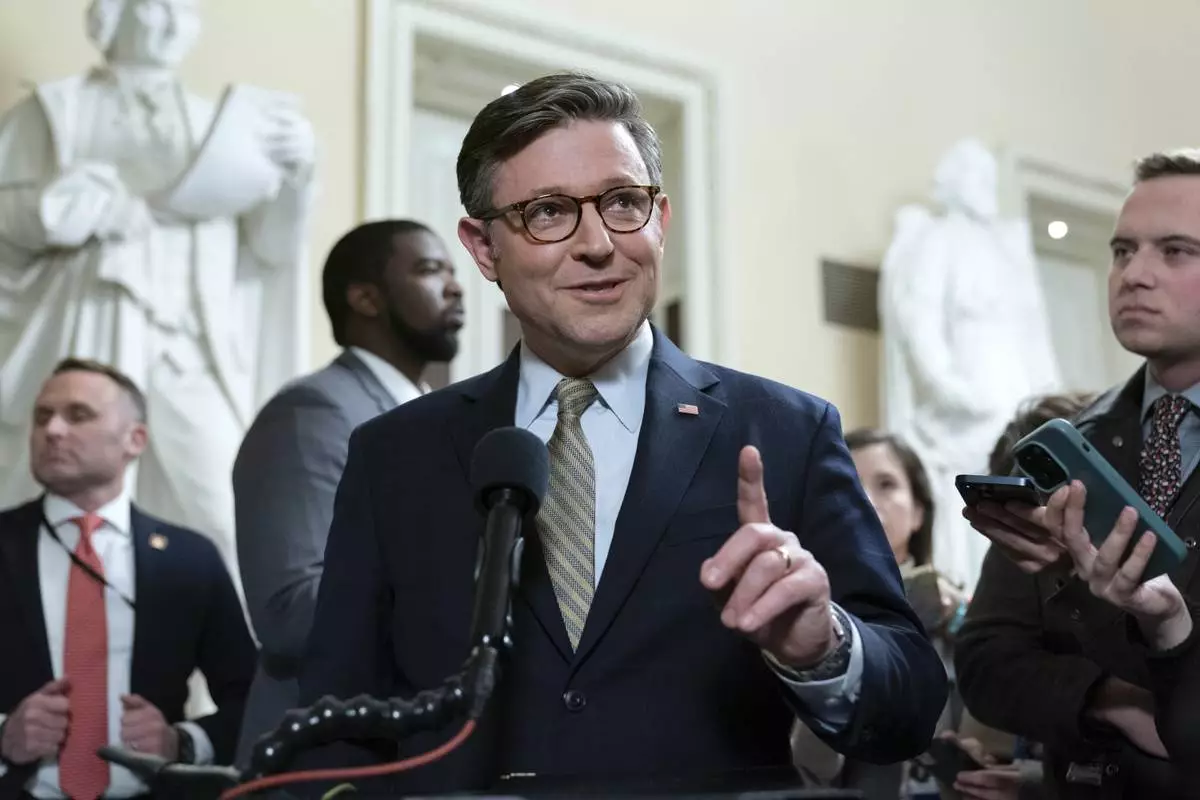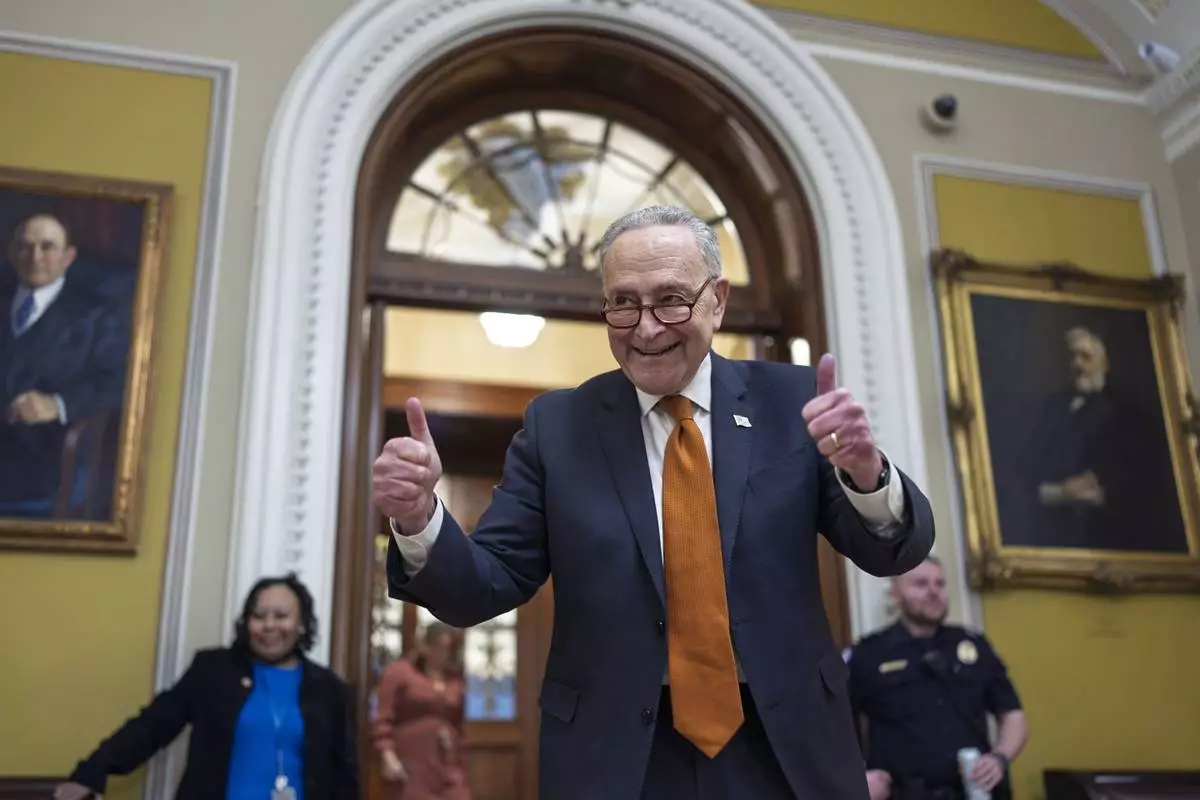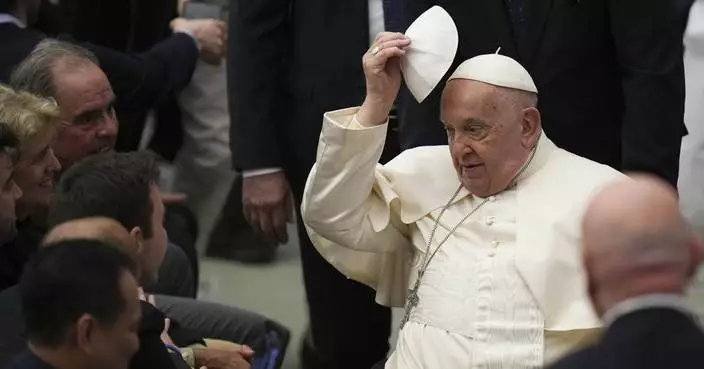WASHINGTON (AP) — Russell Vought sounds like a general marshaling troops for combat when he talks about taming a “woke and weaponized” federal government.
He recently described political opposition as “enemy fire that’s coming over the target,” while urging allies to be “fearless at the point of attack” and calling his policy proposals “battle plans.”
If former President Donald Trump wins a second term in November, Vought may get the opportunity to go on the offensive.
A chief architect of Project 2025 — the controversial conservative blueprint to remake the federal government — Vought is likely to be appointed to a high-ranking post in a second Trump administration. And he’s been drafting a so-far secret “180-Day Transition Playbook” to speed the plan’s implementation to avoid a repeat of the chaotic start that dogged Trump’s first term.
Among the small cadre of Trump advisers who has a mechanic’s understanding of how Washington operates, Vought has advised influential conservative lawmakers on Capitol Hill, held a top post in the Trump White House and later established his own pro-Trump think tank. Now, he’s being mentioned as a candidate to be Trump’s White House chief of staff, one of the most powerful positions in government.
“If we don’t have courage, then we will step away from the battle,” Vought said in June on former Trump aide Steve Bannon’s ‘War Room’ podcast. “But our view is that’s where the country needs us, and we’re not going to save our country without a little confrontation.”
Led by the Heritage Foundation, a conservative think tank, Project 2025 is a detailed 920-page handbook for governing under the next Republican administration. A whirlwind of hard-right ambitions, its proposals range from ousting thousands of civil servants and replacing them with Trump loyalists to reversing the Food and Drug Administration’s approval of medications used in abortions. Democrats for months have been using Project 2025 to hammer Trump and other Republicans, arguing to voters that it represents the former president’s true — and extreme — agenda.
Trump in recent weeks has sought to distance himself from Project 2025. He posted on social media he has not seen the plan and has “no idea who is in charge of it, and, unlike our very well received Republican Platform, had nothing to do with it.”
His campaign said Tuesday that Project 2025’s “demise would be greatly welcomed.” That same day, Paul Dans, the project’s executive director and a former Trump administration personnel official, stepped down.
Trump’s attempts to reject the blueprint are complicated by the connections he has with many of its contributors. More than two dozen authors served in his administration, including Vought, who was director of the White House’s Office of Management and Budget.
The Trump campaign did not respond to questions about which Project 2025 proposals the former president opposes or whether Vought would be offered a high-level government position in a new Trump term.
Vought did not respond to an interview request or to questions first emailed in February to his think tank, the Center for Renewing America, which played a key role in creating Project 2025.
Those who know Vought described him as fiercely dedicated to Trump’s cause, if not to the former president himself.
“A very determined warrior is how I would see Russ,” said a former Trump administration official who worked with Vought in the White House and requested anonymity to speak candidly about him. “I don’t think he thinks about whether or not he likes Donald Trump as a person. I think he likes what Donald Trump represents in terms of the political forces he’s able to harness.”
Born in New York and raised in Connecticut, Vought has described his family as blue collar. His parents were devout Christians. Vought’s father, a Marine Corps veteran, was a union electrician and his mother was a schoolteacher.
Vought’s father, nicknamed Turk, didn’t stand for idleness or waste. Mark Maliszewski, an electrician who knew him, recalled that after a job Turk Vought would scold his co-workers if they tossed out still usable material.
“He’d go over and kick the garbage can,” Maliszewski said. “He’d say: ‘What is this? If those were quarters or dollars in that garbage can, you’d be picking them up.’”
Russell Vought graduated in 1998 from Wheaton College, a Christian school in Illinois that counts the famed evangelist Billy Graham among its alumni. He moved to Washington to work for Republicans who championed fiscal austerity and small government.
“I worked with a lot of different staff people and as far as work ethic, tenacity, intellect, knowledge (and) commitment to principle, Russell was one of the more impressive people I worked with,” said former GOP Rep. Jeb Hensarling of Texas, who hired Vought in 2003.
After honing his credentials as a fiscal hawk, Vought was named policy director of the House Republican Conference, the party’s primary messaging platform chaired at the time by then-Rep. Mike Pence, who went on to serve as Indiana governor and Trump’s vice president.
Vought left Capitol Hill for a lobbying organization attached to the Heritage Foundation. When Trump was elected, Vought became OMB’s deputy director.
His confirmation hearing was contentious. Liberal Vermont Sen. Bernie Sanders accused him of using Islamophobic language when he wrote in 2016 that Muslims “do not know God because they have rejected Jesus Christ his Son, and they stand condemned.”
Vought told senators his remarks were taken out of context and said he respected the right of every person to express their religious beliefs.
The Senate confirmed him to be OMB’s No. 2 by a single vote. He became acting director in early 2019 after his boss, Mick Mulvaney, was named Trump's acting chief of staff. Vought was confirmed as OMB director a year and half later as the COVID-19 pandemic was sweeping the globe.
OMB is a typically sedate office that builds the president’s budget and reviews regulations. But with Vought at the helm, OMB was at the center of showdowns between Trump and Congress over federal spending and the legal bounds of presidential power.
After lawmakers refused to give Trump more money for his southern U.S. border wall, the budget office siphoned billions of dollars from the Pentagon and Treasury Department budgets to pay for it.
Under Vought, OMB also withheld military aid to Ukraine as Trump pressured President Volodymyr Zelenskyy to investigate President Joe Biden and his son. Vought refused to comply with a congressional demand to depose him during the subsequent Democrat-led House investigation that led to Trump’s first impeachment. The inquiry, Vought said, was a sham.
Following Trump's exit from the White House, Vought formed The Center for Renewing America. The organization’s mission is to be “the tip of the America First spear” and “to renew a consensus that America is a nation under God.”
Vought has defended the concept of Christian nationalism, which is a fusion of American and Christian values, symbols and identity. Christian nationalism, he wrote three years ago, “is a commitment to an institutional separation between church and state, but not the separation of Christianity from its influence on government and society.”
The only way to return America to the country the Founding Fathers envisioned is “radical constitutionalism,” Vought said on Bannon’s podcast. That means ensuring control of the executive branch rests solely with the president, not a vast federal bureaucracy.
Anticipating the fights to achieve this, Trump’s backers need to be “fearless, faithful and frugal in everything we do,” he said.
Vought’s center was part of a coalition of conservative organizations, organized by the Heritage Foundation, that launched Project 2025 and crafted a detailed plan for governing in the next Republican administration.
The project’s public-facing document, “Mandate for Leadership,” examined nearly every corner of the federal government and urged reforms large and small to bridle a “behemoth” bureaucracy.
Project 2025 calls for the U.S. Education Department to be shuttered, and the Homeland Security Department dismantled, with its various parts absorbed by other federal offices. Diversity, inclusion and equity programs would be gutted. Promotions in the U.S. military to general or admiral would go under a microscope to ensure candidates haven’t prioritized issues like climate change or critical race theory.
The blueprint also recommends reviving a Trump-era personnel policy that seeks to reclassify tens of thousands of federal workers as political appointees, which could enable mass dismissals.
Ruth Ben-Ghiat, a New York University history professor and author of "Strongmen: Mussolini to the Present,” criticized Project 2025 as “a recipe for mass chaos, abuses of power, and dysfunction in government.”
The overarching theme of Project 2025 is to strip down the “administrative state.” This, according to the blueprint, is the mass of unelected government officials who pursue policy agendas at odds with the president’s plans.
In his public comments and in a Project 2025 chapter he wrote, Vought has said that no executive branch department or agency, including the Justice Department, should operate outside the president’s authority.
“The whole notion of independent agencies is anathema from the standpoint of the Constitution,” Vought said during a recent appearance on the Fox Business Network.
Critics warn this may leave the Justice Department and other investigative agencies vulnerable to a president who might pressure them to punish or probe a political foe. Trump, who has faced four separate prosecutions, has threatened retribution against Biden and other perceived enemies.
Diminishing the Justice Department’s independence would be a “radically bad idea,” said Paul Coggins, past president of the National Association of Former U.S. Attorneys.
“No president deserves to sic the Justice Department on his political enemies, or, frankly, to pull the Justice Department off his political friends,” he said.
It is not clear what job Vought might get in a second Trump administration. He could return as OMB director, the job he held at the end of Trump's presidency, or an even higher-ranking post.
“Russ would make a really, really good (White House) chief of staff,” Mulvaney said.
Associated Press researcher Rhonda Shafner in New York contributed to this report.
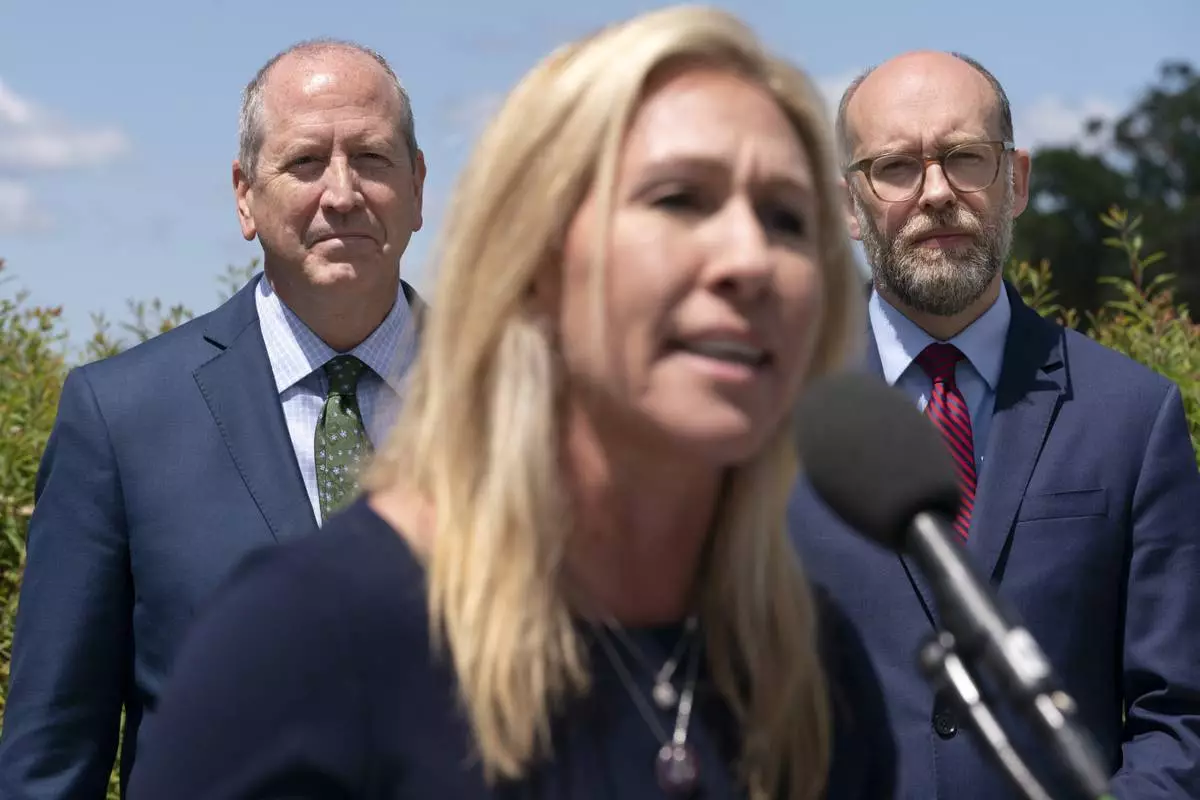
FILE - Rep. Marjorie Taylor Greene, R-Ga., center, speaks during a news conference, Wednesday, May 12, 2021, with Rep. Dan Bishop, R-N.C., back left, and former OMB Director and President of Citizens for Renewing America Russel Vought, as they express their opposition to "critical race theory," on Capitol Hill in Washington. (AP Photo/Jacquelyn Martin, File)
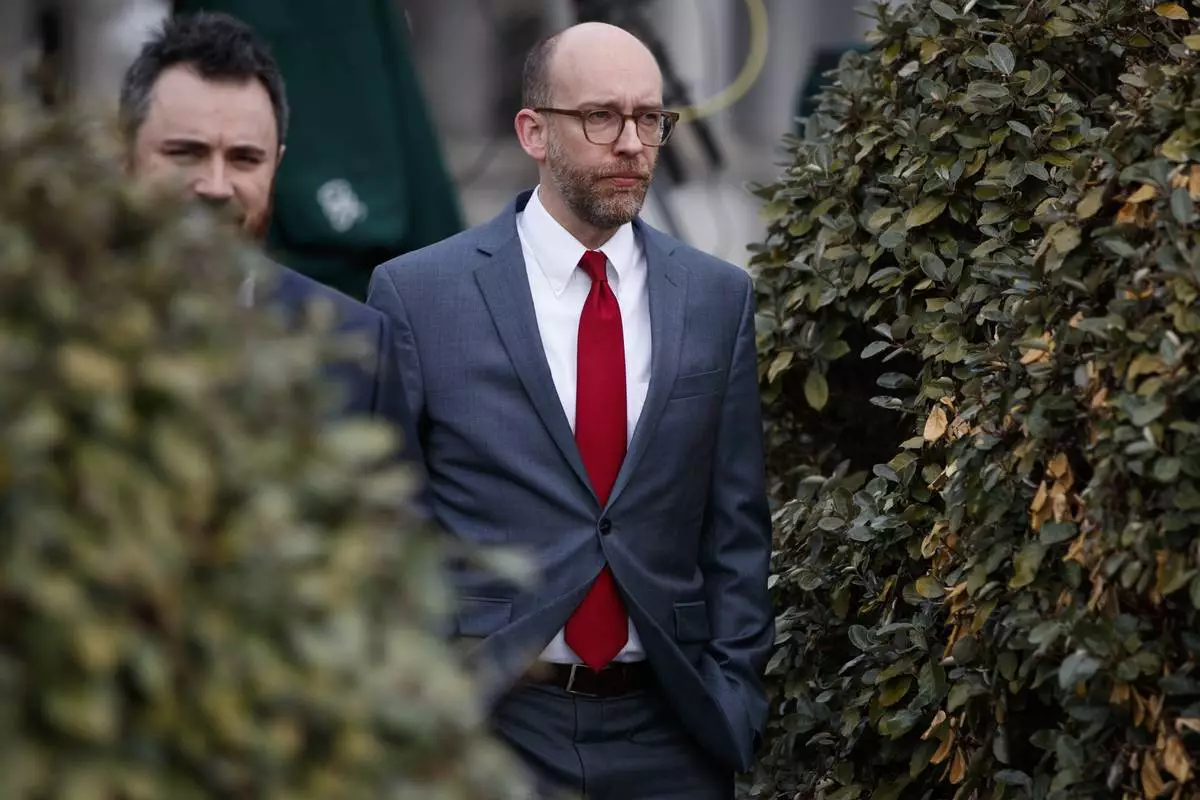
FILE - Acting OMB Director Russel Vought walks towards reporters after doing an interview at the White House, Monday, March 11, 2019, in Washington. (AP Photo/ Evan Vucci, File)
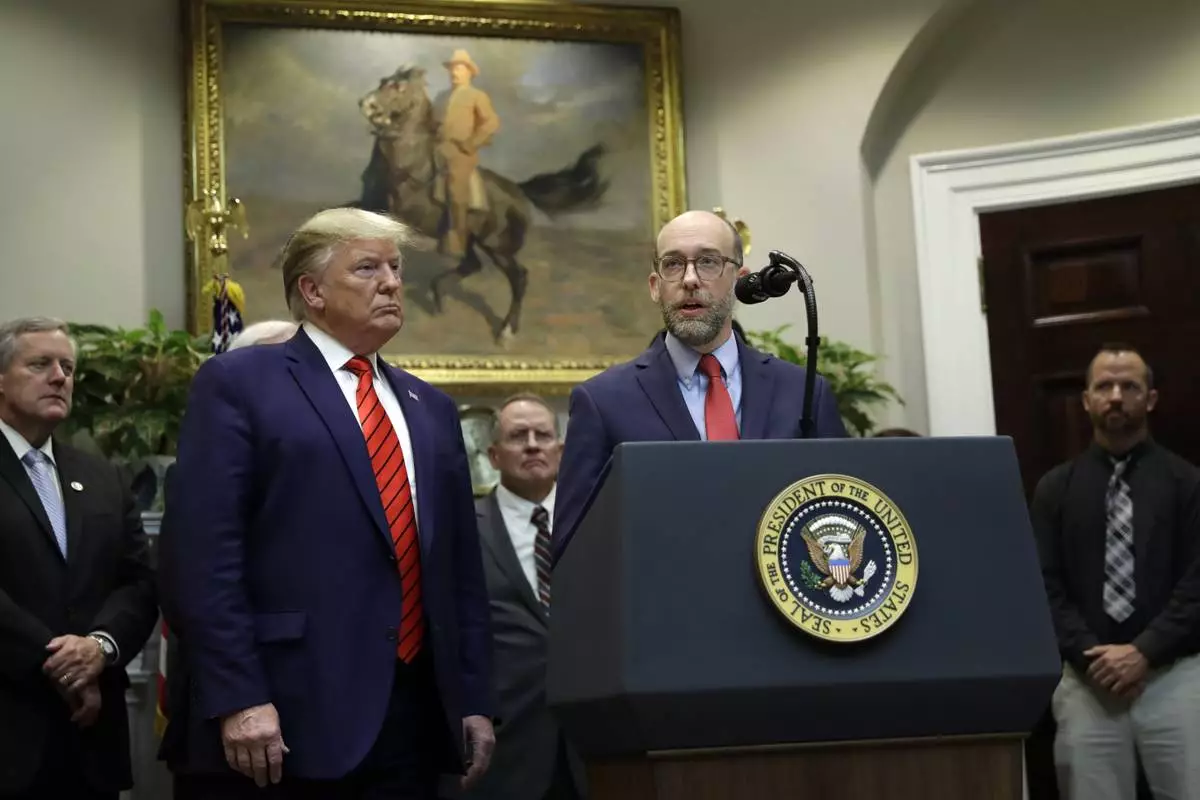
FILE - President Donald Trump listens as acting director of the Office of Management and Budget Russel Vought speaks during an event on "transparency in Federal guidance and enforcement" in the Roosevelt Room of the White House, Wednesday, Oct. 9, 2019, in Washington. (AP Photo/Evan Vucci, File)


